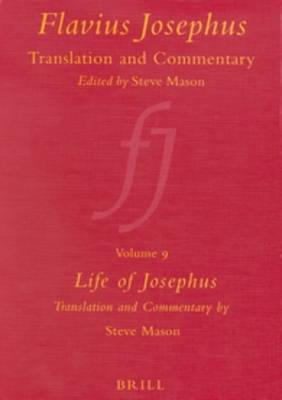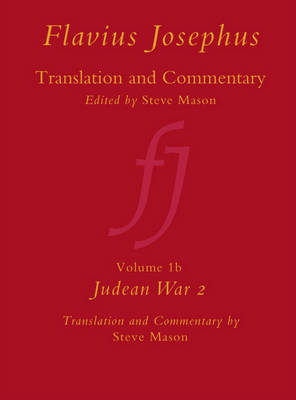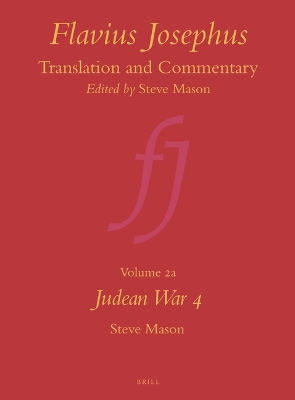Flavius Josephus: Translation and Commentary
1 primary work • 3 total works
Book 9
Flavius Josephus: Translation and Commentary, Volume 9: Life of Josephus
by Steve Mason
Published 1 January 2001
Flavius Josephus, the first-century Jewish historian, is among the most important writers from classical antiquity. The significance of the works of Josephus as sources for our understanding of biblical history and of the political history of Palestine under Roman rule, can scarcely be overestimated.
This volume is part of the first comprehensive literary-historical commentary on the works of Flavius Josephus in English.
Flavius Josephus: Life of Josephus is also available in paperback (ISBN 978-03-91-04205-6).
This volume is part of the first comprehensive literary-historical commentary on the works of Flavius Josephus in English.
Flavius Josephus: Life of Josephus is also available in paperback (ISBN 978-03-91-04205-6).
Flavius Josephus: Translation and Commentary, Volume 1B: Judean War 2
by Steve Mason
Published 16 October 2008
Volume 1b in Brill's Josephus Project contains Book 2 of Josephus' Judean War (translation and commentary). This book deals with a period of enormous consequence: from King Herod's death (4 BCE) to the first phase of the war against Rome (66 CE). It covers: the succession struggle, the governments of Herod's sons, Judea's incorporation as a Roman province, some notable governors (including Pilate), Kings Agrippa I and II, the Judean philosophical schools (featuring the Essenes), various rebel movements and the Sicarii, tensions between Judeans and their neighbors, events leading up to the revolt, the failed intervention of the Syrian legate Cestius Gallus, and preparations for war in Judea and Galilee. The commentary aims at a balance between historical and literary issues.
2a
Flavius Josephus: Translation and Commentary, Volume 2a: Judean War 4
by Steve Mason
Published 15 June 2022
Josephus wrote his most impactful history, The Judean War, in seven volumes. The volume translated here and furnished with a full historical commentary, is pivotal. Filled with high drama and penetrating assessments of human behavior under extreme duress, it brings readers from Galilee and mass suicide at Gamala in the Golan to Vespasian’s rise to imperial power. In between, Josephus explains how first John of Gischala and then Simon bar Giora came to be the two dominant figures in Jerusalem, setting up the siege of Titus. This volume also introduces the war’s most famous antagonists: the Zealots (or Disciples).


